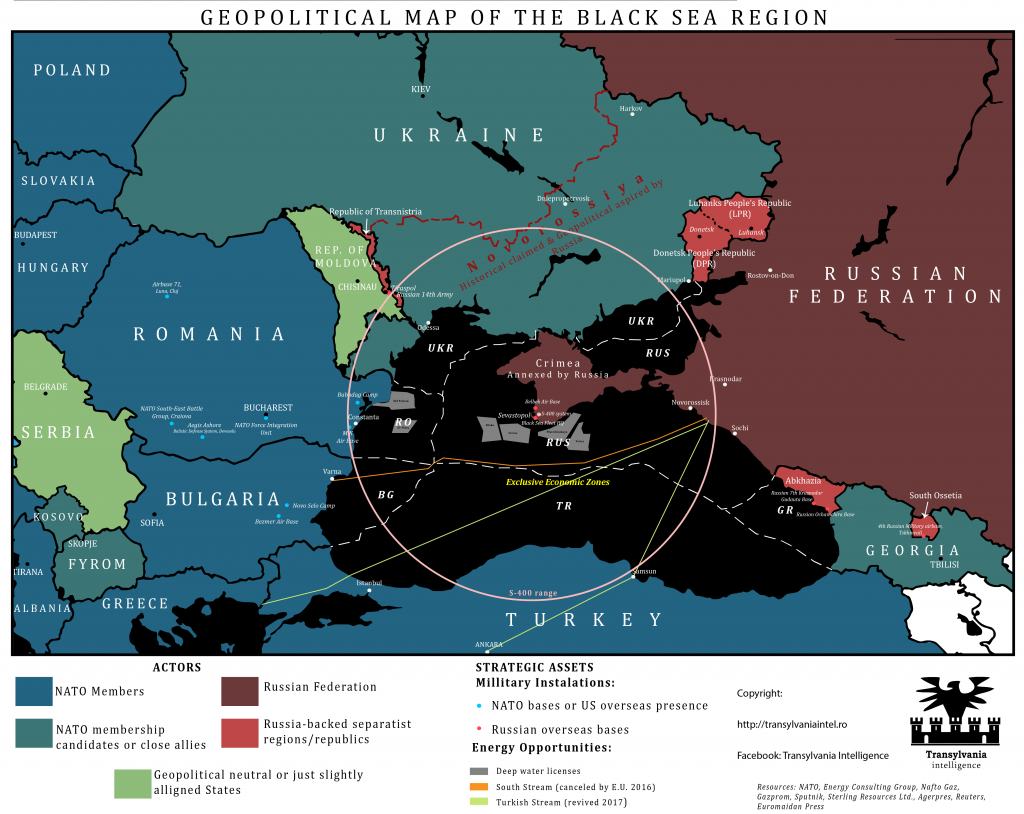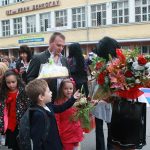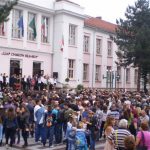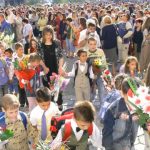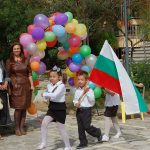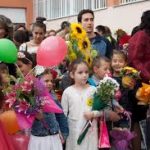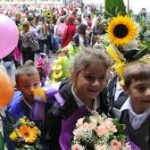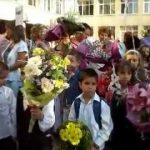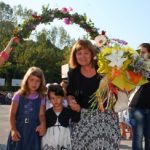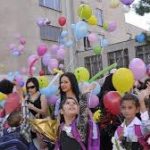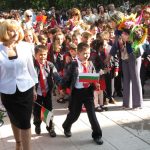- Russia demands payment in roubles to shield it from sanctions
- EU denounces gas cut-off as ‘blackmail’
- Kyiv reports some Russian gains in villages in east Ukraine
- Concern grows that conflict could suck in Moldova
Elections in Bulgaria at Halt Once Again…
This is the third parliamentary snap election since 2021, an unprecedented situation in Bulgarian history, the previous ones being the April, July, and November 2021 elections. We are back at the red light like in 2014 at the 25th Anniversary of the Fall of the Berlin Wall…
Government Elections in Bulgaria (2005-2022):
2005 Parliamentary Elections
2006 Presidential Elections
2007 Municipal Elections
2009 Parliamentary Elections
2009 European Parliament elections
2011 Presidential Elections
2011 Local Elections
2013 Early parliamentary elections
2014 Early Parliamentary Elections
2015 Municipal Elections
2016 Presidential election
2017 Parliamentary elections
2019 European Parliament election (23-26 May)
2019 Bulgarian local elections
2019 Municipal Elections
2021 April National Parliament election
2021 Second National Parliament election
2021 Third National Parliament and Presidential elections
2022 October elections for 48th National Assembly after the fall of a four-party coalition in June 2022.
25 (now 33) Years after Communism…
25 years in 60 seconds at the red-light…
I’m driving slowly in the dark and raining streets of my home town passing through clouds of car smoke. The gypsy ghetto in the outskirts of town is covered with the fog of fires made out of old tires burning in the yards. And the loud music adds that grotesque and gothic nuance to the whole picture with poorly clothed children dancing around the burnings.
The first red light stops me at the entrance to the “more civilized” part of the city. The bright counter right next to it slowly moves through the long 60 seconds while tiredly walking people pass through the intersection to go home and escape the cold rain. The street ahead of me is already covered with dirt and thickening layer of sleet.
This is how I remember Bulgaria of my youth and it seems like nothing has changed in the past 25 years.
The newly elected government just announced its coalition cabinet – next to a dozen like it that had failed in the past two decades. The gas price is holding firmly at $6/gal. and the price of electricity just increased by 10%, while the harsh winter is already knocking at the doors of poor Bulgarian households. A major bank is in collapse threatening to take down the national banking system and create a new crisis much like in Greece. These are the same factors that caused Bulgaria’s major inflation in 1993 and then hyperinflation in 1996-97.
What’s next? Another winter and again a hard one!
Ex-secret police agents are in all three of the coalition parties forming the current government. The ultra nationalistic party called “ATTACK” and the Muslim ethnic minorities party DPS are out for now, but awaiting their move as opposition in the future parliament. At the same time, the new-old prime minister (now in his second term) is already calling for yet another early parliamentarian election in the summer. This is only months after the previous elections in October, 2014 and two years after the ones before them on May 2013.
Every Bulgarian government in the past 25 years has focused on two rather mechanical goals: cardinal socio-economical reforms and battle against communism. The latter is simply unachievable without deep reformative change within the Bulgarian post-communist mentality. The purpose of any reform should be to do exactly that. Instead, what is always changing is the outwardness of the country. The change is only mechanical, but never organic within the country’s heart.
Bulgaria’s mechanical reforms in the past quarter of a century have proven to be only conditional, but never improving the conditions of living. The wellbeing of the individual and the pursuit of happiness, thou much spoken about, are never reached for they never start with the desire to change within the person. For this reason, millions of Bulgarians and their children today work abroad, pursuing another life for another generation.
The stop light in front of me turns green bidding the question where to go next. Every Bulgarian today must make a choice! Or we’ll be still here at the red light in another 25 years from now…
First Day of School in Bulgaria
Bulgaria calls October 2 snap elections amidst caretaker government
SOFIA, Aug 1 (Reuters) – Bulgarian President Rumen Radev set Oct. 2 as the date for the country’s fourth parliamentary election in less than two years on Monday, after the collapse in June of reformist Prime Minister Kiril Petkov’s coalition government. Radev also appointed former labour minister Galab Donev to lead a caretaker government to serve from Aug. 2 until a new government is formed after the election. Radev will outline the priorities of the new government on Tuesday, his office said in a statement.
The European Union country faces surging inflation, natural gas supply doubts and other impacts from the war in Ukraine. The appointment of Donev, 55, a presidential adviser on social policies, is seen as a sign that shielding households from soaring energy and food prices will be a priority for the caretaker administration. This could involve efforts to renew Russian gas imports as well as mending diplomatic relations with Moscow strained under Petkov’s government.
Bulgaria once again on the verge of early elections
After the first successful vote of no confidence in Bulgarian history has become a reality, the county is now governed by a cabinet in resignation and a parliament torn apart by inter-party attacks. The National Assembly and the government can remain operational but attention must be paid to temporary majorities formed in plenary hall. However, adopting the budget update with its anti-inflation measures, which a large part of the Bulgarian population depends on, is in question, political analysts warn.
The vote is now over, but many questions remain unanswered.
“None of us who often commented on the objective difficulties, the contradictions in the coalition and the clash with the opposition could imagine that this government would be toppled so easily and so quickly,” sociologist Boryana Dimitrova, head of Alpha Research, said in an interview with BNR. “The economic stalemate, inflation and tense geopolitical state of affairs have led to a situation when no one is particularly eager to take power. Analysts have already pointed out that the lack of a political force that feels ready to take power prolongs the life of this government.”
After the cabinet was brought down, it turned out that solving the political puzzle is not so easy. The inability of the National Assembly to make decisions after the withdrawal of one of the coalition partners – “There is Such a People” is more than obvious and this will lead to early elections, analysts say.
Despite the difficult situation, Prime Minister Kiril Petkov said that “We Continue the Change” party, which is the largest political force in parliament, would accept the mandate of President Rumen Radev to form a government and would try to find 121 independent MPs. However, Deputy Prime Minister Assen Vassilev is pessimistic and forecasts that the country is heading towards new elections in the autumn.
“Seeking support from several MPs while it is unknown what mechanism can be used for them to join in and how sustainable their vote would be is either a tale for naive people or a dangerous political delusion,” Boryana Dimitrova says.
In this situation, the speed with which the parliamentary roulette will be turned is important. This depends on the Bulgarian President and there are constitutional deadlines, but the process can be faster or slower enough to update the budget – an extremely serious topic for many Bulgarians. The update envisages pension hike from 1 July, tax cuts for working families with children, support for the business to deal with high energy prices. Minister of Social Affairs Georgi Gyokov called on MPs to “show some common sense” and to support the social and anti-inflationary measures specified in the update.
“There is a lot of appetite towards the budget and discussions are heated,” sociologist Boryana Dimitrova says. “On the one hand we are told that various demands can be met, while others claim that this is a time bomb that would explode next year. It is difficult to find the truth, but in any case we need a serious conversation and a purposeful budget update. Whether this will happen and what proposals will be made between the first and second reading of the document in the National Assembly is an important political question that will give us signals whether we can think about future coalitions or overlap of opinions at least when it comes to basic economic principles.“
Government Elections in Bulgaria (2005-2022):
2005 Parliamentary Elections
2006 Presidential Elections
2007 Municipal Elections
2009 Parliamentary Elections
2009 European Parliament elections
2011 Presidential Elections
2011 Local Elections
2013 Early parliamentary elections
2014 Early Parliamentary Elections
2015 Municipal Elections
2016 Presidential election
2017 Parliamentary elections
2019 European Parliament election (23-26 May)
2019 Bulgarian local elections
2019 Municipal Elections
2021 March National Parliament election
2021 Second National Parliament election
2021 Third National Parliament and Presidential elections
The White House announces new US ambassador to Bulgaria
US President Joe Biden has nominated Kenneth Merten for new ambassador to Bulgaria in place of Herro Mustafa, who has been ambassador to Sofia since 2019. The nomination must be approved by the Senate in Washington. Kenneth Merten has acted as Special Coordinator for Haiti and he was also Ambassador to Croatia from 2012 to 2015 and Ambassador to Haiti from 2009 to 2012. Merton was also an economic adviser at the US Embassy in France. He speaks Haitian Creole, French, German and Spanish languages.
Our Bulgarian Chaplaincy Association celebrates 25 years of Military Ministry in Bulgaria
 Our Bulgarian Chaplaincy Association celebrates 25 years of Military Ministry in Bulgaria since the first event co-hosted by the Bulgarian Armed Forces and government officials in 1997.
Our Bulgarian Chaplaincy Association celebrates 25 years of Military Ministry in Bulgaria since the first event co-hosted by the Bulgarian Armed Forces and government officials in 1997.
2018 The Road toward a Balkan Multi-Ministry Center and Legal Status
2017 Bulgarian Chaplaincy Association: Legal Case Renewed
2015 Revisting the Integration Proposal with Local NATO Programs by Bulgarian Chaplaincy Association
2014 Bulgarian Chaplaincy Association: Vision and Resolution Reaffirmed
2012 First Class of the Master’s of Chaplaincy Ministry Program
2011 Master’s of Chaplaincy Ministry Program Continues
2010 Master’s of Chaplaincy Ministry Program begins in Sofia, Bulgaria
2009 Bulgarian Chaplaincy Association holds an introductory chaplaincy course in Yambol, Bulgaria
2008 The Case of a NATO Chaplaincy Model within the Bulgarian Army released
2007 Bulgarian Chaplaincy Associations Recognized by U.S. Department of State
2006 Registration for the Bulgarian Chaplaincy Association Rejected by Bulgarian Court
2005 The Bulgarian Chaplaincy Association presented before the Bulgarian Evangelical Alliance
2004 Three U.S. Bases in Bulgaria to be Built by 2010
2003 The Case of a NATO Chaplaincy Model within the Bulgarian Army
2002 First Balkan Chaplaincy Conference at the Central Church of God in Sofia, Bulgaria
2001 Church of God Chaplaincy Commission to visit Bulgaria
2000 Euro-seminar: Christian ethics in the military forces
1997 First Military Ministry Seminar in Veliko Tarnovo
With all this accomplished, in the beginning of the 21st century law and chaplaincy meet on the road to democracy as Bulgaria remains the only country in NATO without military force chaplaincy. But before chaplaincy could be legalized completely and endorsed by the state to its full functionality, several changes must be undergone. Some of them are:
- Legal provision allowing chaplains to work as staff in the army, which guarantees the equal presence of protestant chaplains as well.
- The approval, acceptance and implementation of a NATO based model for chaplaincy within the structures of the Bulgarian Army.
- Periodical and systematic educational strategy toward chaplaincy workers among Bulgarian evangelicals.
- A paradigm for cooperation of Bulgarian chaplains from various ethnic, religious and cultural backgrounds.
- Further research publications to enhance the efficiency of chaplaincy within the Bulgarian national context.
Also important [click to read]:
- U.S. Department of State recognizes our chaplaincy efforts in Bulgaria
- Bulgarian Chaplaincy Association: Integration Proposal with Local NATO Programs
- Bulgarian Chaplaincy Association: Vision and Resolution
- Chronology of our role and involvement in developing Church of God chaplaincy in Bulgaria since 2001
- Master’s of Chaplaincy Ministry Program in Bulgaria Reflections
- The Past Decade of Chaplaincy in Bulgaria (2006-2016)
- Related Publications and Presentations by Cup & Cross Ministries International
More Publications on the Topic and History of Events:
- Chaplaincy Conference and Master’s of Chaplaincy
- Chaplaincy Course in Yambol, BULGARIA
- Bulgarian Chaplaincy Association Annual Meeting
- Family Seminar for Military Men and Women
- Cup & Cross Ministries in Church of God Publications
- The Case of a NATO Chaplaincy Model within the Bulgarian Army
- 10 Years of Military Ministry in Bulgaria
- National Chaplaincy Conference
- Bulgarian Chaplaincy Association Gains Legal Status
- Chaplain Dees Visits Bulgaria
- Chaplaincy Course at the Bulgarian Evangelical Theological Institute
- Bulgarian Chaplaincy Association
- Meeting the NATO Chaplain
- National Chaplaincy Meeting
- Chaplaincy Developments in Bulgaria
- U.S. Bases in Bulgaria
- National Chaplaincy Meeting
- Chaplaincy in Bulgaria
- HEALTHCARE CHAPLAINCY IN BULGARIA
- Chaplaincy in Bulgaria
- Mission Bulgaria
PUTIN halts gas supplies to BULGARIA
WARSAW/SOFIA/KYIV, April 27 (Reuters) – Europe should stop depending on Russia for trade after Moscow halted gas supplies to Bulgaria and Poland for not paying in roubles, Ukraine said, as the shutoff exposed the continent’s weaknesses and divisions on Wednesday.
The decision, denounced by European leaders as “blackmail”, comes as Russia’s own economy wilts under sanctions and Western countries are sending more arms to Kyiv despite warnings from the Kremlin to back off.
Gazprom (GAZP.MM), Russia’s gas export monopoly, suspended gas supplies “due to absence of payments in roubles”, as stipulated in a decree from Russian President Vladimir Putin that aims to soften the impact of sanctions.
“The sooner everyone in Europe recognizes that they cannot depend on Russia for trade, the sooner it will be possible to guarantee stability in European markets,” Ukrainian President Volodymyr Zelenskiy said late on Wednesday. While the president of the European Commission said Gazprom’s move was “yet another attempt by Russia to use gas as an instrument of blackmail”, EU member state ambassadors asked the executive for clearer guidance on whether sending euros breached sanctions. France will host a meeting of EU energy ministers on May 2 to discuss how to deal with Russia’s move. Kremlin spokesperson Dmitry Peskov said Russia remained a reliable energy supplier and denied it was engaging in blackmail.
He declined to say how many countries had agreed to switch to paying for gas in roubles but other European customers said gas supplies were flowing normally.
On the battlefield, Ukraine reported that Russian troops had made gains in the east. Russia reported a number of blasts on its side of the border, and a blaze at an arms depot. Kyiv called the explosions “karma”.
Ukraine said Russian forces had used tear gas and stun grenades to disperse a pro-Ukraine rally in Kherson, the first big city it has seized. A series of powerful explosions caused by rockets hit the centre of Kherson late on Wednesday, Ria News agency reported. The invasion of Ukraine has reduced towns and cities to rubble, and forced more than 5 million people to flee abroad in a conflict that has prompted fears of wider conflict in the West, unthought of for decades.
Moscow calls it a “special operation” to disarm Ukraine. Kyiv and its allies call the war an unprovoked act of aggression. With so many EU members reliant on Russian energy, the European Commission has said the EU’s gas buyers can engage with Russia’s payment scheme provided certain conditions are met. Germany’s main importer, Uniper (UN01.DE), said it could pay without violations. Austria and Hungary, among others, have also indicated they will take this route.
Bulgaria and Poland, former Soviet-era satellites that have since joined the EU and NATO, are the only two European countries with Gazprom contracts due to expire at the end of 2022, which meant their search for alternatives was under way.
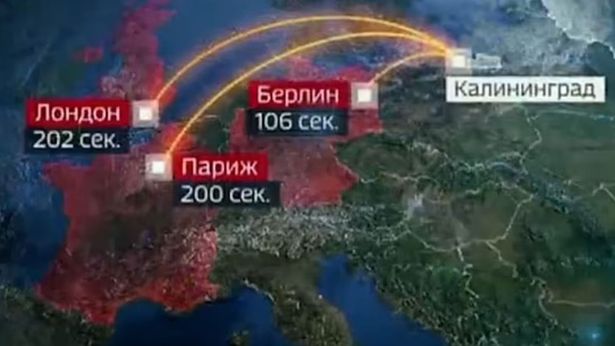
160,000 Pentecostals in Bulgaria Reported by the NEW Encyclopedia of Global Pentecostalism
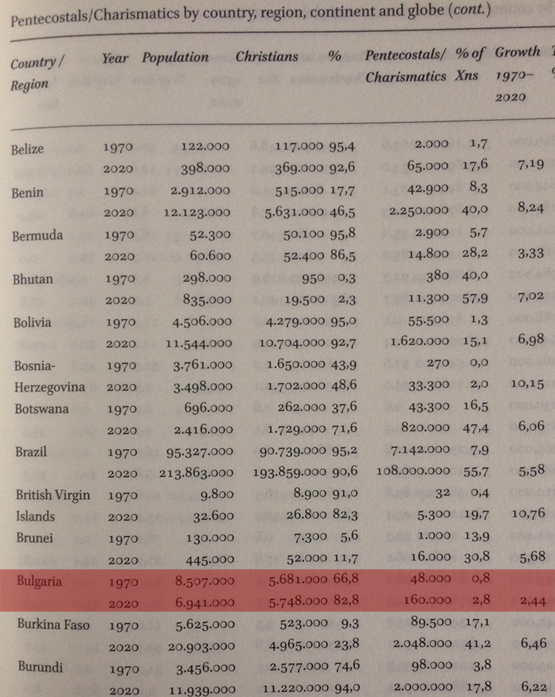
Head NATO Commander visiting Bulgaria
The commander of Nato’s Allied Land Command, Lieutenant General Roger Cloutier, is visiting Bulgaria, according to a Bulgarian Defense Ministry statement on March 2.
Cloutier has held talks with Bulgaria’s Defence Chief, Admiral Emil Eftimov, on measures to strengthen Nato’s deterrent and defense capabilities in Eastern Europe as a result of hostilities in Ukraine, the Defence Ministry said.
Bulgaria’s decision to build an Alliance battle group was welcomed, and the possibilities for other nations to participate in it in order to increase the training and interoperability of the allies were discussed, the statement said.
The timeliness of the decision was emphasized, which is in line with the establishment of battle groups in other Eastern European countries. On March 2, Cloutier was to visit Bulgarian military formations and training grounds, where he would get acquainted with the state of their capabilities and the opportunities for joint training and exercises, the ministry said.
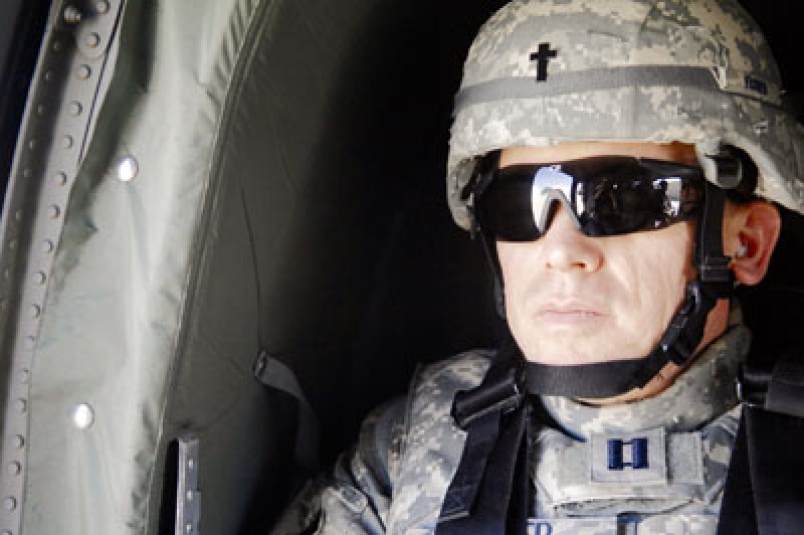
 Bulgarian Chaplaincy Association celebrates 25 years of Military Ministry in Bulgaria since the first event co-hosted by the Bulgarian Armed Forces and government officials in 1997.
Bulgarian Chaplaincy Association celebrates 25 years of Military Ministry in Bulgaria since the first event co-hosted by the Bulgarian Armed Forces and government officials in 1997.
2018 The Road toward a Balkan Multi-Ministry Center and Legal Status
2017 Bulgarian Chaplaincy Association: Legal Case Renewed
2015 Revisting the Integration Proposal with Local NATO Programs by Bulgarian Chaplaincy Association
2014 Bulgarian Chaplaincy Association: Vision and Resolution Reaffirmed
2012 First Class of the Master’s of Chaplaincy Ministry Program
2011 Master’s of Chaplaincy Ministry Program Continues
2010 Master’s of Chaplaincy Ministry Program begins in Sofia, Bulgaria
2009 Bulgarian Chaplaincy Association holds an introductory chaplaincy course in Yambol, Bulgaria
2008 The Case of a NATO Chaplaincy Model within the Bulgarian Army released
2007 Bulgarian Chaplaincy Associations Recognized by U.S. Department of State
2006 Registration for the Bulgarian Chaplaincy Association Rejected by Bulgarian Court
2005 The Bulgarian Chaplaincy Association presented before the Bulgarian Evangelical Alliance
2004 Three U.S. Bases in Bulgaria to be Built by 2010
2003 The Case of a NATO Chaplaincy Model within the Bulgarian Army
2002 First Balkan Chaplaincy Conference at the Central Church of God in Sofia, Bulgaria
2001 Church of God Chaplaincy Commission to visit Bulgaria
2000 Euro-seminar: Christian ethics in the military forces
1997 First Military Ministry Seminar in Veliko Tarnovo
With all this accomplished, in the beginning of the 21st century law and chaplaincy meet on the road to democracy as Bulgaria remains the only country in NATO without military force chaplaincy. But before chaplaincy could be legalized completely and endorsed by the state to its full functionality, several changes must be undergone. Some of them are:
- Legal provision allowing chaplains to work as staff in the army, which guarantees the equal presence of protestant chaplains as well.
- The approval, acceptance and implementation of a NATO based model for chaplaincy within the structures of the Bulgarian Army.
- Periodical and systematic educational strategy toward chaplaincy workers among Bulgarian evangelicals.
- A paradigm for cooperation of Bulgarian chaplains from various ethnic, religious and cultural backgrounds.
- Further research publications to enhance the efficiency of chaplaincy within the Bulgarian national context.
Also important [click to read]:
- U.S. Department of State recognizes our chaplaincy efforts in Bulgaria
- Bulgarian Chaplaincy Association: Integration Proposal with Local NATO Programs
- Bulgarian Chaplaincy Association: Vision and Resolution
- Chronology of our role and involvement in developing Church of God chaplaincy in Bulgaria since 2001
- Master’s of Chaplaincy Ministry Program in Bulgaria Reflections
- The Past Decade of Chaplaincy in Bulgaria (2006-2016)
- Related Publications and Presentations by Cup & Cross Ministries International
More Publications on the Topic and History of Events:
-
- Chaplaincy Conference and Master’s of Chaplaincy
- Chaplaincy Course in Yambol, BULGARIA
- Bulgarian Chaplaincy Association Annual Meeting
- Family Seminar for Military Men and Women
- Cup & Cross Ministries in Church of God Publications
- The Case of a NATO Chaplaincy Model within the Bulgarian Army
- 10 Years of Military Ministry in Bulgaria
- National Chaplaincy Conference
- Bulgarian Chaplaincy Association Gains Legal Status
- Chaplain Dees Visits Bulgaria
- Chaplaincy Course at the Bulgarian Evangelical Theological Institute
- Bulgarian Chaplaincy Association
- Meeting the NATO Chaplain
- National Chaplaincy Meeting
- Chaplaincy Developments in Bulgaria
- U.S. Bases in Bulgaria
- National Chaplaincy Meeting
- Chaplaincy in Bulgaria
- HEALTHCARE CHAPLAINCY IN BULGARIA
- Chaplaincy in Bulgaria
- Mission Bulgaria
Bulgaria in the Tension between NATO, Ukraine and Russia
Bulgaria‘s strategy in the crisis over Ukraine, adopted at today’s cabinet meeting, will be aimed entirely at the Bulgarian army, and our country will make every effort to resolve the conflict peacefully. This was announced by Prime Minister Kiril Petkov after the government session.
Some of the information during today’s sitting is secret and will not be announced, including to the deputies in the parliament, Kiril Petkov told the ministers. Later, it became clear from his words to the media that Bulgaria will focus all its efforts on resolving the Russia-Ukraine conflict through diplomatic channels. And our defense system will be aimed at developing the potential of the Bulgarian army.
Less than a day was the deadline given by Prime Minister Kiril Petkov to the Minister of Defense Stefan Yanev to prepare a draft of the national position of our country and measures to strengthen the security system in Bulgaria. The project was submitted and approved at today’s meeting.
The Council of Ministers decided to prioritize Bulgaria‘s strategy towards fully de-escalating tensions between NATO and the Russian Federation, as well as to use absolutely all opportunities through diplomatic channels to resolve this conflict. Our defense strategy will be based on the Bulgarian army. That means Bulgarian troops, Bulgarian command and Bulgarian military leadership, said Kiril Petkov, prime minister.
The Prime Minister expressed regret that over the years our army has been underfunded and stressed that we will work actively to cover precisely these deficits by avoiding the purchase of equipment that is not systematically selected. From now on, Bulgaria should not be just a consumer of security. It should be a constructive partner of NATO, said Kiril Petkov.
The Minister of Defense Stefan Yanev announced that together with the diplomatic efforts “Bulgaria must develop its defense potential in the direction of preparing a battalion battle group with Bulgarian troops and Bulgarian command”. On BNT he explained the details:
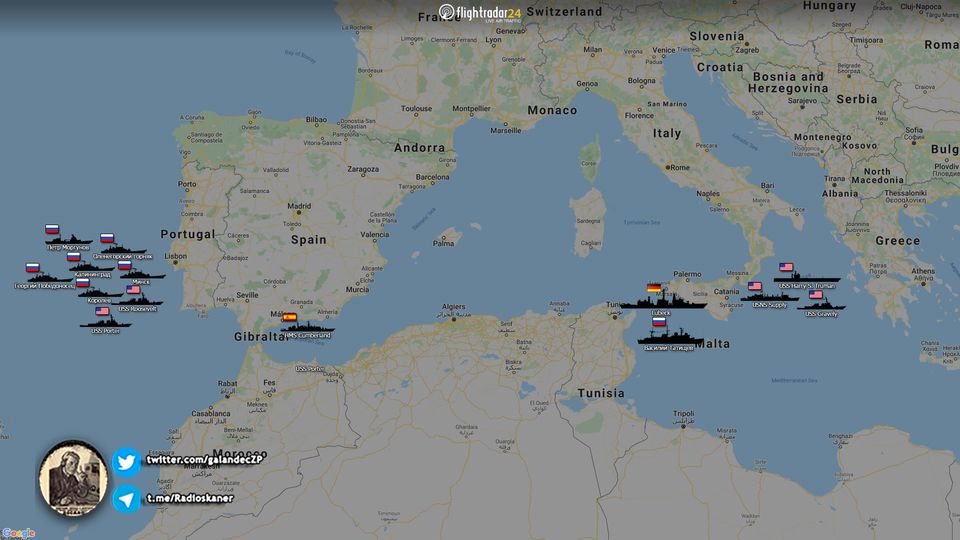 This will happen with a limited contingent, if we talk about what size – the order is not more than one battalion, not more than 1,000 people. A joint exercise is not a task, but a means, a joint exercise is a means to increase training and capacity. The battalion will take part in joint NATO exercises, which have been planned since last year, Yanev said. According to him, the decisions made today will be the Bulgarian position in the framework of the discussed measures in NATO.
This will happen with a limited contingent, if we talk about what size – the order is not more than one battalion, not more than 1,000 people. A joint exercise is not a task, but a means, a joint exercise is a means to increase training and capacity. The battalion will take part in joint NATO exercises, which have been planned since last year, Yanev said. According to him, the decisions made today will be the Bulgarian position in the framework of the discussed measures in NATO.
Neither the Prime Minister nor the Minister of Defense commented today on the information from the last days about the possible deployment of NATO ground troops and fighters in our country.
Source from Brussels: Bulgaria is Ready to Accept French Soldiers
And the Foreign Minister reminded that since December at all diplomatic forums our country has consistently insisted on the need to find a diplomatic solution to the conflict. These efforts will continue in the future. We hope that the conflict will be resolved diplomatically. However, diplomatic speech must be supported by the necessary evidence that we have the necessary defense capabilities, said Teodora Genchovska – Minister of Foreign Affairs.
The National Assembly heard out Kiril Petkov and ministers on Russia-NATO tensions at an extraordinary meeting today
The Prime Minister, the Ministers of Defense, the Ministers of Foreign Affairs, and the heads of the services in connection with the Russia-NATO tension and the Bulgarian position were heard in the parliament.
Bulgaria is not a consumer of security – this was stated by Prime Minister Kiril Petkov before the National Assembly. He added that in the current situation the Bulgarian army will be prioritized with a battalion, which will probably be formed in April-May. There is also a readiness to withdraw Bulgarian diplomats from Ukraine, but there is no such need at the moment.
The Minister of Defense highlighted the deficits in the Bulgarian army. The Foreign Minister pointed out that our country gives precedence to diplomacy.
MPs outlined dialogue as the best mechanism for resolving the crisis. They expressed concern about the state of the Bulgarian army and the possible economic consequences of escalating tensions.
The de-escalation of tensions is a top priority for Bulgaria, Prime Minister Kiril Petkov reaffirmed before parliament.
Bulgarian PM: Bulgaria is a Sovereign State. Russia should De-Escalate
“The escalation is real. We monitor all developments in this conflict on a daily basis. Our strategy for the first time has the idea of not being security consumers, but partners. Over the years, there are clear deficits in equipment in the Bulgarian army. We have different options – to prioritize the Bulgarian army, with Bulgarian troops, with Bulgarian command,” said Kiril Petkov.
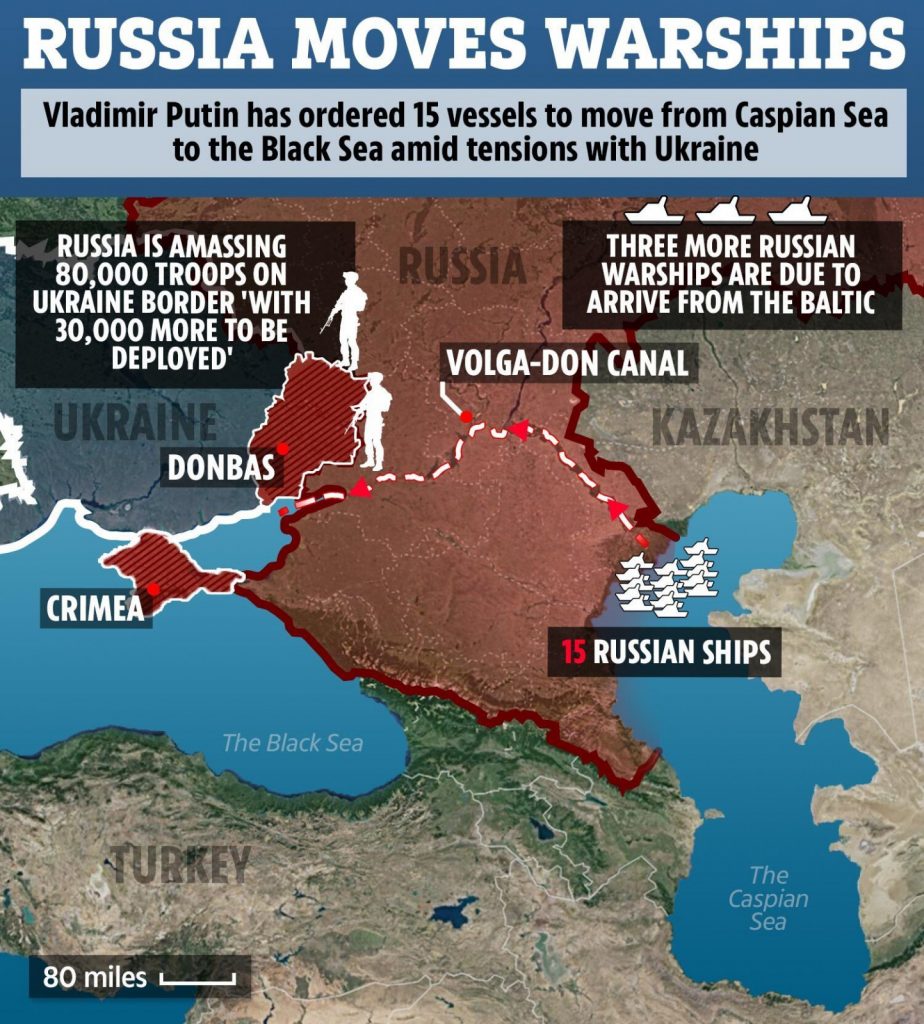
The Minister of Defense further developed the idea of prioritizing the Bulgarian army.
“A Bulgarian battalion will be made and everything will be done through national communication channels. This means that this battalion will increase the pace of preparation. We do not envisage escalation. We do not envisage plans to defend national territory. Nor do we envisage plans for another team to go elsewhere, to a different place”, said Stefan Yanev – Minister of Defense.
The Foreign Minister pointed out that our country gives precedence to diplomacy.
“Obviously, Russia is trying to divide allies by dividing them into categories,” said Teodora Genchovska, the foreign minister.
Opposition party GERB expressed concern that our country may behave as a security consumer.
“We will support you if you stop raising dust with phrases such as ‘national interest’. For us, the national interest is to be a strong member of NATO. GERB governments have done a lot for our defense capabilities – we paid for ‘Cougars’ and ‘Spartans’, you will order and pay the next F-16s. If you offer us a meaningful position – we are ready to support you,” said Daniel Mitov of GERB-SDS.
“The only thing to say whether we are a consumer is how we set our priorities. Our priority is the Bulgarian army with Bulgarian troops,” said Kiril Petkov.
The political party Democratic Bulgaria expressed concern over the state of the Bulgarian army.
“The mission of the Bulgarian army is constitutionally set, but we are all aware of the degree of readiness of obsolete equipment and delayed modernization,” said Hristo Ivanov.
The opposition party Movement for Rights and Freedoms outlined the best solution to the problems in this crisis.
“Through discussion, transparency, and everything that leads to military action. What would be the economic consequences?” Mustafa Karadayi said.
“The main risks are in the energy sector,” Kiril Petkov replied.
And the coalition party “There Is Such a People” focused on the possible economic consequences of escalating tensions.
“Is there a scenario for the energy sector?” Victoria Vasileva of TISP asked.
“We have a clear plan and we are in communication with the EU on how this can happen. Bulgarian households and businesses will be able to count on it,” said Kiril Petkov.
The Bulgarian left welcomed the ruling party’s decision to de-escalate tensions.
“The key for Bulgaria is to maintain its position in this hysterical situation. Bulgaria will not engage in hostile and military action,” Christian Vigenin from the Bulgarian Socialist Party said.
The nationalist Vazrazhdane (Revival) party asked the prime minister if he thought Russia posed a threat to Bulgaria‘s national security.
“There is an escalation of hysteria in Bulgaria. Russian troops are just doing standard exercises. This is being used in the domestic political debate. We are not just a consumer of security, we are using security as a maneuvering ground,” party leader Kostadin Kostadinov said.
Russia has launched Military Maneuvers near Ukraine and in Annexed Crimea
Bulgarian PM: Bulgaria’s Sovereignty is Above Everything
“We have no master. No one can say otherwise,” said Kiril Petkov.
